Bipolar Disorder
Bipolar Disorder is a mental health condition in which the patient experiences severe variations in mood, behaviors, and attitude toward life. Those suffering from Bipolar disorder exhibit extreme moods, like highs when the person feels excessively euphoric and irritable (hypomania) and extreme lows of depression (feelings of hopelessness and dread) in a cyclical manner.
Bipolar disorder symptoms are generally characterized by frequent and unwarranted shifts in mood. The mood swings may occur only on rare occasions for some patients or continue to happen back to back for some.
Symptoms of Bipolar Disorder
Symptoms of Major Depressive Episodes
- Severe sadness or hopelessness
- Loss of interest/weight changes
- Sleep problems
- Poor concentration
- Suicidal thoughts
Symptoms of Manic Mood Episodes
- Euphoria
- Agitation and high energy
- Restlessness and distractibility
- Racing thoughts
- Compulsive activity
- Overconfidence
- Impulsive/reckless behavior
Symptoms of Hypomania
- Easily getting distracted
- Increase in impulsive behaviors
- Behaviour that is focused on attaining goals
- Restlessness and Irritability
- Reduced need for sleep
- Unusual talkativeness and excitability
Our Professionals
Causes of Bipolar Disorder
Though the exact causes of bipolar disorder are not known, certain risk factors could increase the vulnerability of an individual to developing bipolar disorder.
- Biological Risk Factors - It has been noticed that individuals with bipolar disorder show differences in brain structure. The exact differences and why they cause bipolar disorder have not been found out yet.
- Psychological Risk Factors - Certain disorders like Attention Deficit Hyperactivity Disorder (ADHD) and Post-Traumatic Stress Disorder (PTSD) have been shown to increase the risk of an individual developing bipolar disorder.
- Genetic Risk Factors - A person with a family history of bipolar disorder has a greater risk of developing the disorder. Researchers think that there might be a specific gene associated with bipolar disorder, though it has not yet been discovered
Risk Factors of Bipolar
Some of the factors that may trigger you to develop bipolar disorder are
- If your family member is suffering from bipolar disorder, close exposure to it can cause you to develop one.
- Experiencing high stress for a long period because of a traumatic event.
- Drug and alcohol addictions are at greater risk.
Complications of Bipolar
The complications of bipolar disorder can vary if left untreated, such as:
- The difficulties relate to the misuse or overuse of drugs and alcohol, which worsen your condition.
- There are not only constant suicidal thoughts but also many attempts due to severe mood changes.
- Legal and financial problems are bound to happen if people with bipolar disorder try to take impulsive steps.
- It ruins your relationship, whether it is among friends, colleagues, family, or a romantic one.
- A damaged relationship rippled into poor school or work performance.
Understand the various aspects of this condition

Types of Bipolar Disorder
Every bipolar disorder patient demonstrates their symptoms differently. Based on the intensity of symptoms, bipolar disorder can be classified into different types:
Bipolar I Disorder
If you have experienced at least one maniac episode that lasted for a week, that is the key feature of this bipolar disorder. Episodes can be extreme and dangerous and can happen with or without depression. Sometimes, psychotic symptoms, such as delusions, accompany this disorder.
Bipolar II Disorder
The occurrence of at least one depressive episode and one hypomania episode is a feature of bipolar II disorder. Depressive episodes last longer than bipolar I disorder since it is often the dominant mood. It is crucial to understand that people with bipolar II disorder do not have manic episodes.
Cyclothymic Disorder
The cyclothymic disorder involves frequent unstable mood swings that can change spontaneously over short periods, even within one day. Since it’s less severe than bipolar I and bipolar II disorders, people with cyclothymic disorder experience shorter periods of depressive and manic episodes. Still, it can impact your life just as much.
Rapid Cycling Bipolar Disorder
This disorder is characterized by experiencing at least four episodes of major depression, mania, and hypomania within only one year. You may feel stable for weeks between episodes. This cycle has no set pattern, which can happen at any time throughout the illness.
Bipolar with Mixed Features
Bipolar with mixed features is when you experience mixed episodes of depression and mania or hypomania at the same time or very quickly after each other. For example, you may be doing pleasurable activities but have depressive symptoms. It is often diagnosed with bipolar I or bipolar II disorder with mixed features.
Unspecified Bipolar
This bipolar disorder occurs when your symptoms don't align with any other types of bipolar disorder. When your symptoms are too different or unique, it’s difficult to categorize them into one, but that doesn’t mean you are free from treatment. Your symptoms may be the same, and you still need support.
Find nearest mental health center now

Rehabilitation for Bipolar Disorder at Cadabams
Treatment at Cadabams does not stop at simply managing symptoms. We strive to help you or your loved one regain a sense of normalcy after treatment with our psychosocial rehabilitation plans. With services such as social skills training, occupational therapy, supported employment, post-treatment, and crisis care, we ensure that you receive a comprehensive care plan for complete rehabilitation into society.
Rehabilitation is an effective process for meeting the multiple needs of an individual suffering from a psychological disorder. We provide medical care, psychotherapeutic interventions, group therapies, and support groups, along with the constant supervision of mental health professionals, to help you or your loved one move toward recovery. At Cadabams, our multispecialty team of professionals has curated a bipolar disorder program specifically for bipolar disorder. In cases of substance abuse resulting from bipolar disorder, we also provide services to manage problems of addiction as well. Thus, our bipolar disorder treatment plans are personalized to meet your and you are loved one’s needs.
Cadabam's wide range of assessments and evaluations, along with its solution-oriented approach to treatment, make it one of the best bipolar disorder treatment centers in India. Our clinicians stay with you every step of the way to ensure a comfortable journey to recovery.
Listen to Our Expert Insights on Bipolar Disorder
Our centres where we treat Bipolar Disorder
Diagnosis Of Bipolar Disorder
Bipolar disorder symptoms usually start showing by the age of 25 years. However, it is also possible for individuals to show symptoms in adolescence or even childhood. It is important to identify these early-onset symptoms as fast as possible, as the symptoms tend to worsen over time.
It may be difficult to diagnose bipolar disorder due to the sudden shifts in depressive and manic episodes. To diagnose Bipolar Disorder, the mental health professional will first conduct a full diagnostic test of the symptoms to rule out any other mental health disorders, such as depression. Further, the clinician asks questions about the medical history of the individual and their family, alcohol and substance use habits, and previous occurrences of psychiatric illnesses in the family, if any. This helps to get a full diagnostic picture of the individual’s symptoms and reach a bipolar disorder diagnosis.
If the professional feels that the person suffers from bipolar disorder, they refer the individual to a psychiatrist who can create an appropriate bipolar disorder treatment plan.
When to See a Doctor for Bipolar Disorder?
Lack of awareness of their unstable mood swings and the harm they're causing are often the causes of not getting proper treatment. If you or your loved one have any symptoms, seek mental health professional help.
At Cadabams, our experienced team of experts assesses and evaluates the severity of your symptoms and tailors a personalized treatment plan for you.
Treatment for Bipolar Disorder
Some of the treatment options for bipolar disorder include:
- Medication:
Bipolar disorder medication needs to be properly regulated due to the continuous changes in moods. Thus, it is important to be in touch with your psychiatrist to find the dosage that works best for your symptoms. In case there are any side effects experienced due to the bipolar disorder medication, consult your psychiatrist immediately to change the dosage or the medication itself.
Several types of medicines can be used to manage bipolar disorder. These include mood stabilizers, antipsychotic medications, antidepressants, and anti-anxiety medications.
- Psychotherapy:
Counseling and are important parts of bipolar disorder treatment alongside medication. Therapy can happen in an individual or group setting. It may also involve family members. Some of the most common therapeutic interventions for bipolar disorder include:
- Cognitive Behavioural Therapy (CBT): CBT helps an individual identify unhealthy, negative thought patterns that cause distress. These thoughts are then reframed into more healthy and positive ones. This helps the individual create strategies to manage symptoms and triggers on a long-term basis.
- Family Therapy: Family involvement and support are important parts of recovery. Family therapy educates family members about the condition of their loved ones and how to manage their symptoms while maintaining their emotional well-being.
- Group Therapy and Support Groups: Group therapy emphasizes the importance of building empathy and learning from others in the therapeutic process. Through group therapy, individuals with bipolar disorder can motivate and support each other through their journeys towards recovery.
Some other psychotherapeutic interventions include Interpersonal and Social Rhythm Therapy, Dialectical Behaviour Therapy, and Occupational Therapy.
When to Get Emergency Help for Bipolar Disorder?
Due to extreme and unstable mood swings, people with bipolar disorder are more likely to develop suicidal thoughts, posing a safety risk to themselves and potentially others. If you are suffering, seeking emergency help from a mental health professional is crucial.
Many mental health providers offer excellent holistic services to manage bipolar disorder. Cadabams Hospitals is one such provider, with experienced professionals to guide you every step of the way on your recovery journey. If you or a loved one is struggling, please reach out to us or any qualified mental health professional for help.
Find out about centres, daily updates and more about mental health

Why Choose Cadabams for Bipolar Disorder?

33+ years of focused mental healthcare, shaped by 1000+ real patient journeys.

State of the art mental health centres built for treatment and recovery.

A coordinated team of psychiatrists, psychologists, counsellors, and rehabilitation specialists supporting your care.

Support from early signs through treatment and recovery.

Treatment guided by clear plans that continue beyond diagnosis.

Planned follow ups and continued guidance to help maintain progress over time.
Facilities & Amenities
Frequently Asked Questions
Yes, many people with bipolar disorder experience seasonal patterns in their mood episodes, such as more depressive symptoms in winter and more manic symptoms in spring or summer. Changes in sunlight, circadian rhythms, and weather can influence these shifts, and being aware of seasonal triggers
Yes, bipolar disorder can occur in children and teenagers, though symptoms may look different than in adults. Youth may show rapid mood swings, irritability, or extreme behavior changes. Early diagnosis and treatment are important to help manage symptoms and support healthy development.
Yes, bipolar disorder can significantly affect daily life and relationships. Mood swings, including episodes of mania and depression, can impact work, school, social interactions, and family life. With treatment, coping strategies, and support, many individuals can manage symptoms and maintain healthy relationships.
Yes, bipolar disorder has a hereditary component. Individuals with a family history of bipolar disorder are at a higher risk of developing the condition, although genetics interact with environmental factors. Having a relative with bipolar disorder increases susceptibility but does not guarantee it will occur.
No specific causes behind Bipolar Disorder have been crystallized yet. However, multiple factors influence the incidence of the disorder. These include genetic factors, psychological factors and environmental factors.
While the disorder is chronic in nature, with early diagnosis and effective accurate treatment, individuals can recover from the disorder. They can lead functional and fulfilling lives with treatment.
Case Studies
Our Programs
Our Testmonials
Blogs you may be interested in
Helpline at your fingertips
+91 9611194949

.webp)








-min.webp)



.avif)

-min.webp)

.avif)

.avif)
.webp)

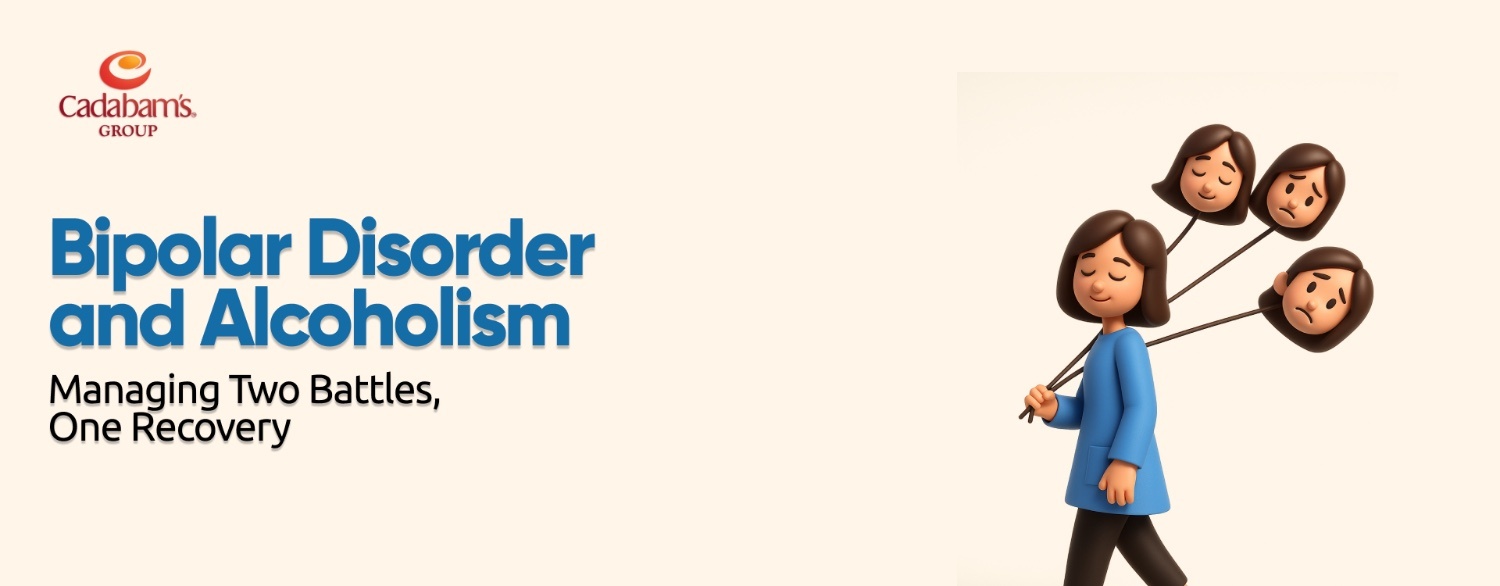

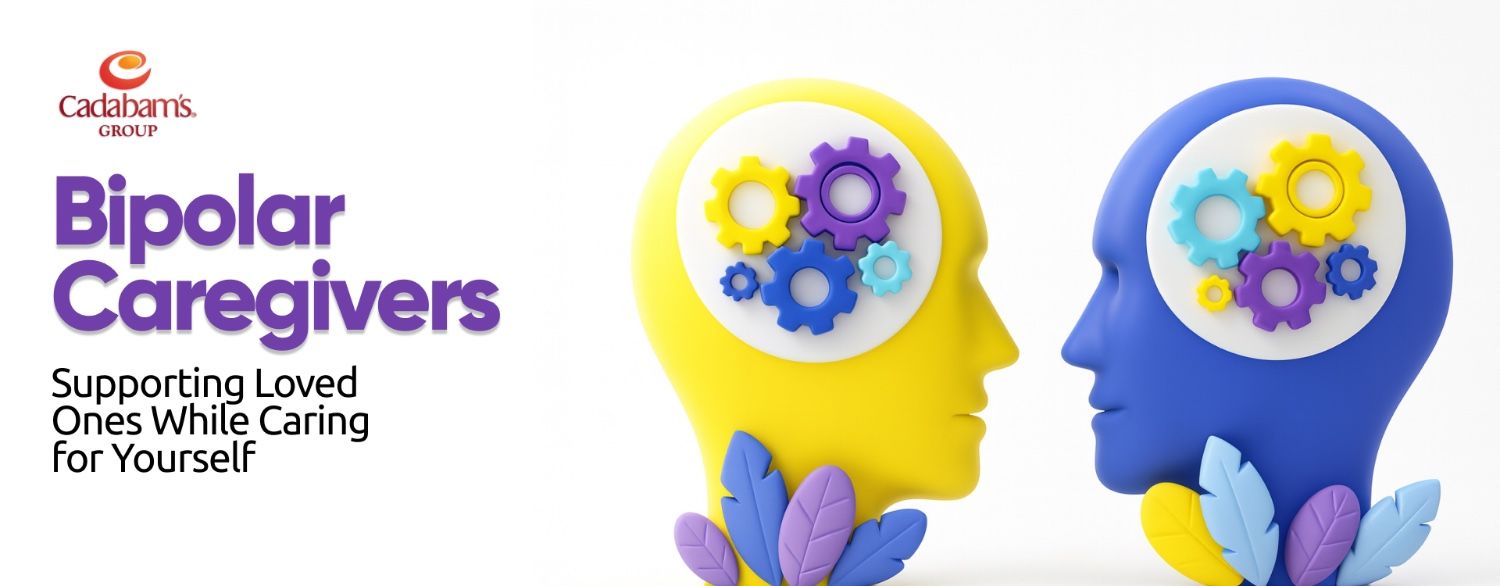
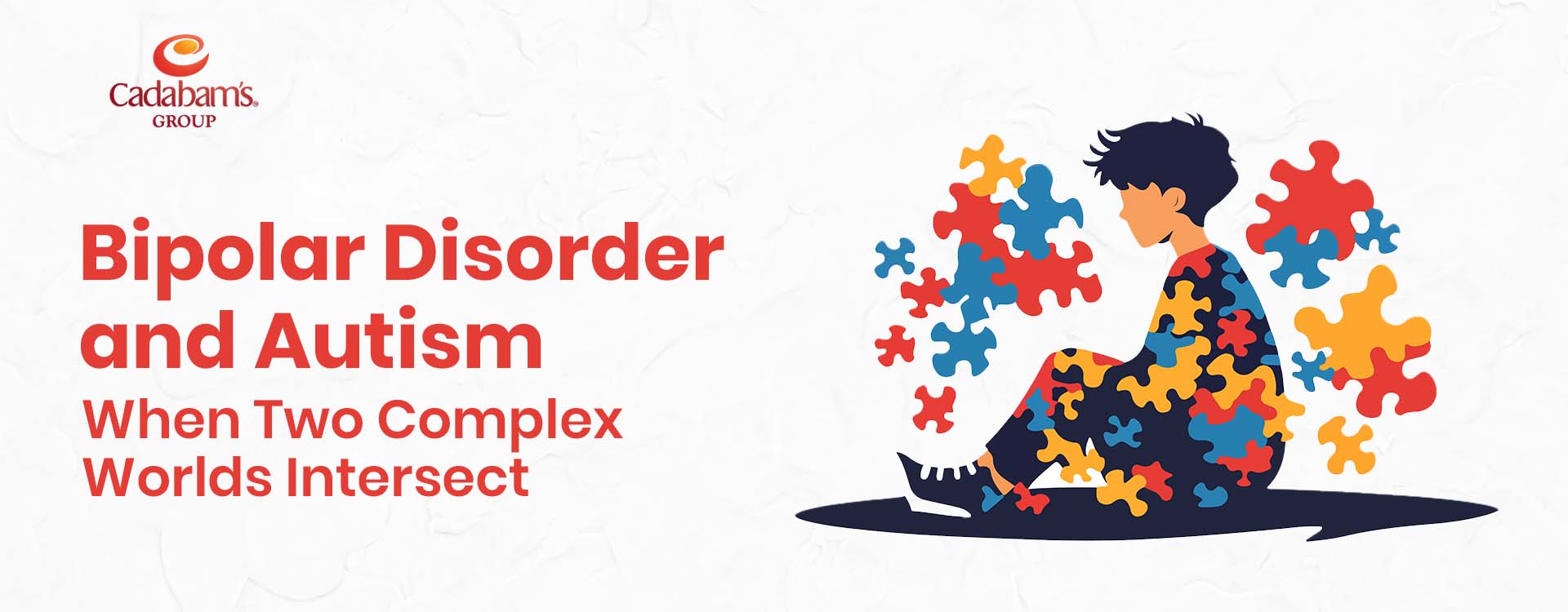
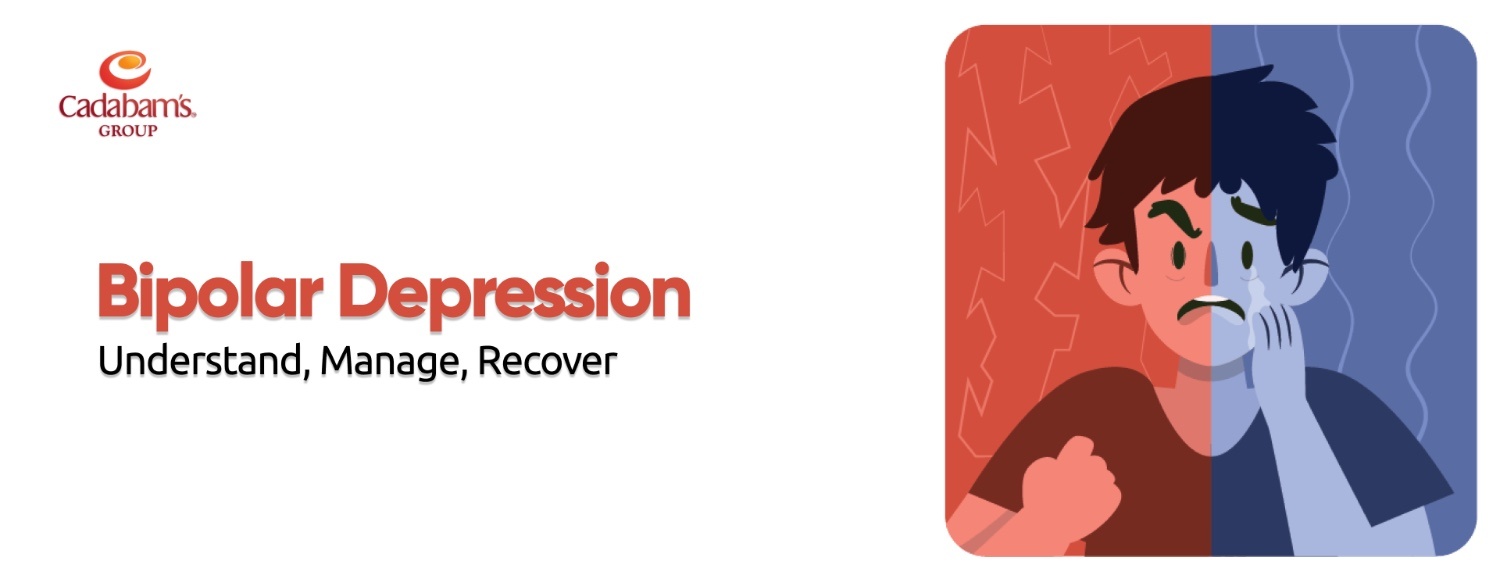
.jpg)











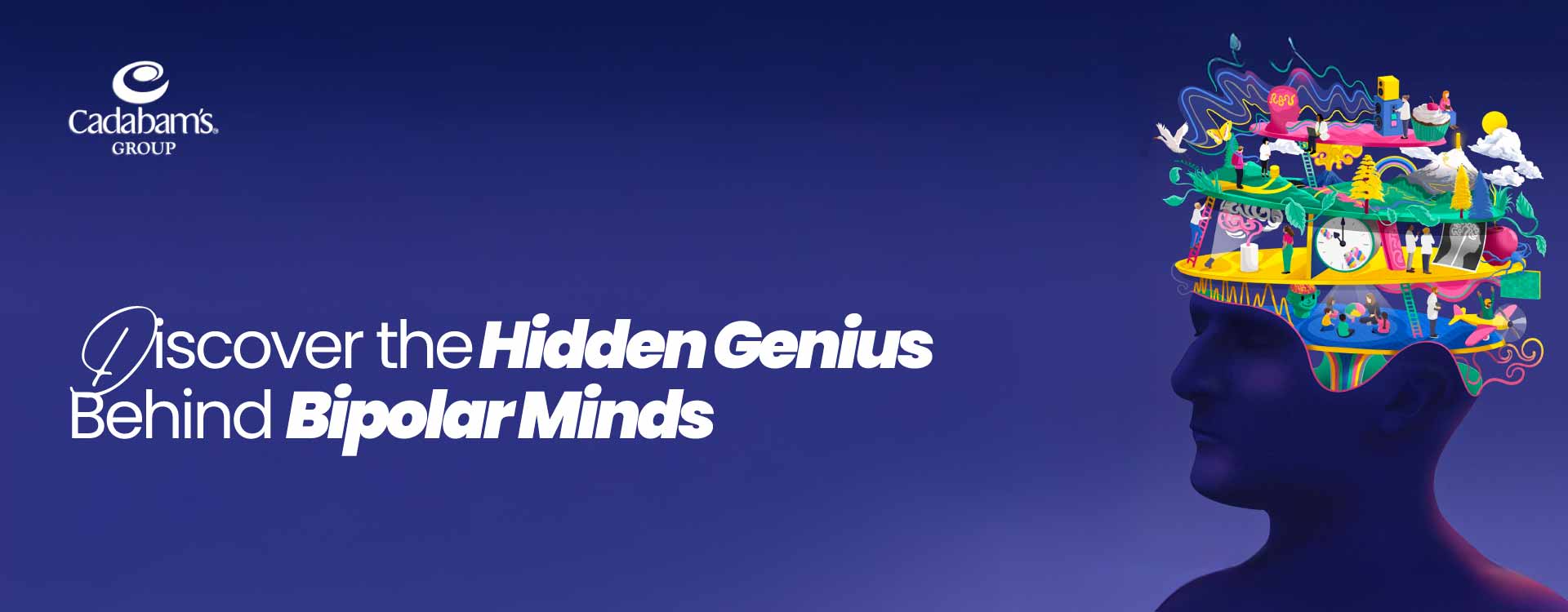

.jpg)

.avif)




.avif)




